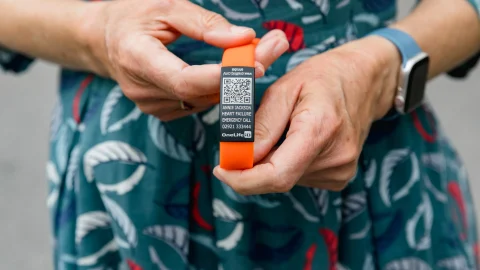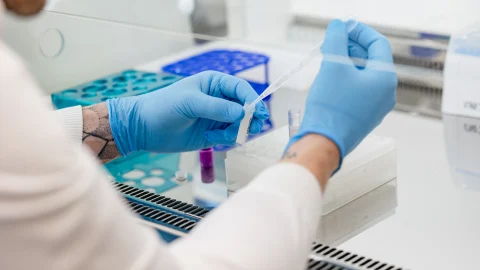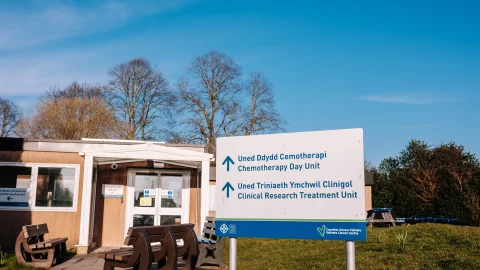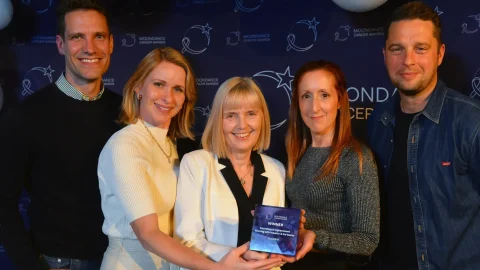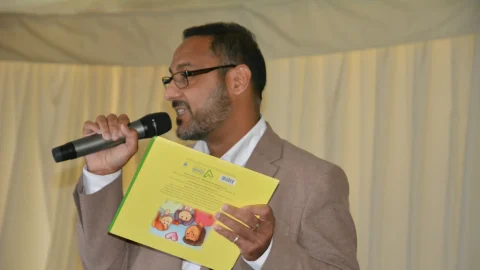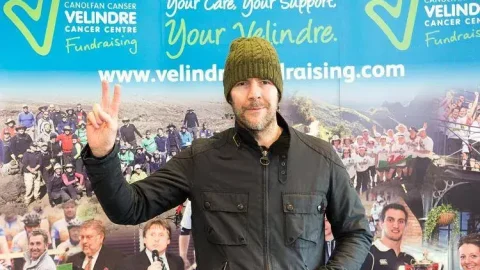Real Stories, Real Impact
Transforming Patient Care: Ceri Stubbs Awarded Doctoral Studentship at Velindre
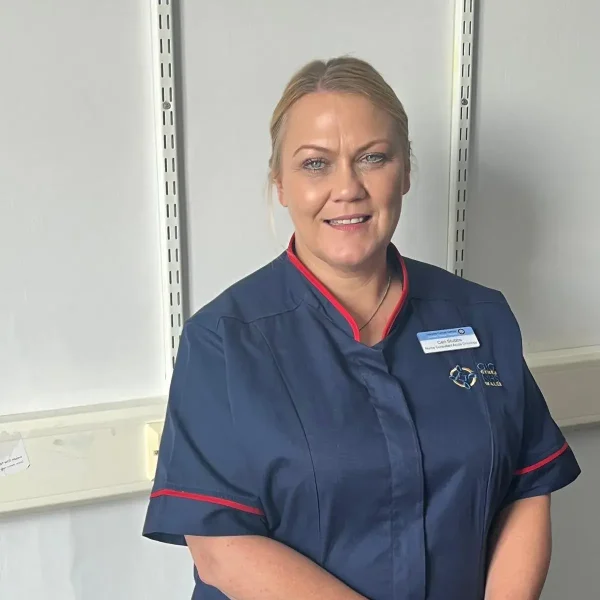
Without them, I wouldn’t have had this opportunity.
Velindre’s Healthcare Cancer Research Fellowships
At the Hospital of Hope, our staff are at the heart of providing exceptional patient care. That’s why we’re committed to investing in their growth and development. By funding research opportunities like Velindre’s Healthcare Cancer Research Fellowships, we equip our staff with the latest techniques to lead ground-breaking research and service improvements that directly benefit our patients.
Our charity-funded fellowships are made up of three different research opportunities: Velindre’s First into Research, the Doctoral Studentship and the Post-Doctoral Studentship in Cancer Care. These fellowships provide unique opportunities for healthcare professionals not typically funded in research to undertake projects that improve patient outcomes and contribute to wider knowledge of cancer care in the UK. Delivered in collaboration with Cardiff University’s School of Healthcare Sciences, the fellowships support individuals like Ceri Stubbs, Nurse Consultant in Acute Oncology, to transform patient care at Velindre and beyond.
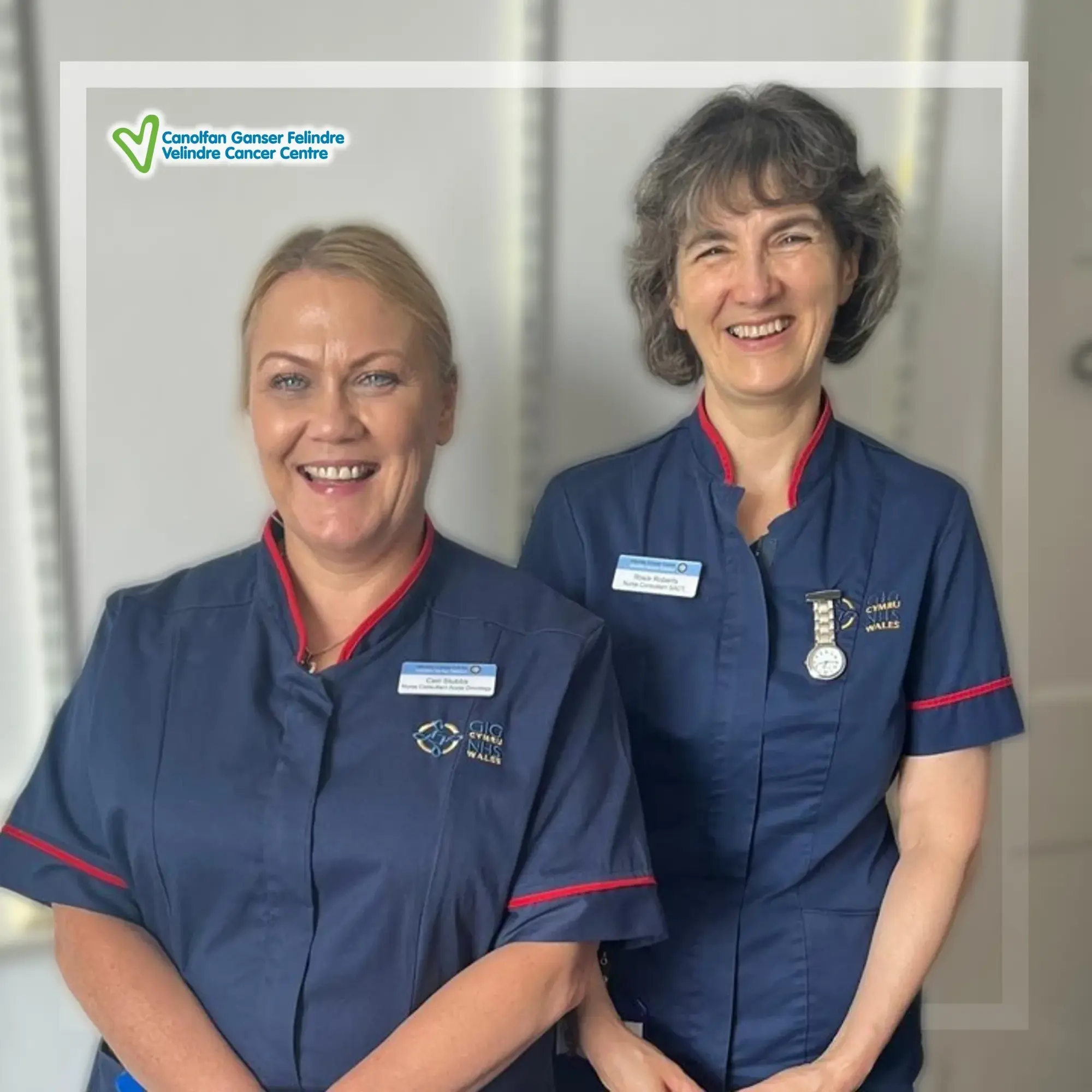
Ceri Stubbs is awarded Velindre’s Doctoral Studentship in Cancer Care
Ceri has had a long career in nursing. Qualifying as a State Enrolled Nurse in the early 1990s, and converting to a Registered Nurse level 1 in 1998, she spent 15 years in adult intensive care before coming to Velindre. Ceri has studied extensively throughout her career, and has a BSc in clinical leadership, a PGCE in healthcare education and an MSc in advanced clinical practice. Following completion of her MSc, Ceri became the lead for the Acute Oncology Service (AOS) Advanced Nurse Practitioner team and has more recently been appointed as a Nurse Consultant. She is also currently the deputy clinical lead for AOS within the Wales Cancer Network.
Ceri said of her work:
“Since coming to Velindre I have worked within the Acute Oncology Service. I have seen nursing roles and services evolve–nurses now lead and develop services, continually expand their practice and knowledge, participate in research, undertake service improvement projects and challenge practices. I am inspired to see how my respected nursing colleagues are transforming the ways we provide care to our patients.”
Ceri didn’t plan to apply for a PhD. In fact, she had always thought research was a bit daunting. However, after a chance meeting with Professor of Nursing Jane Hopkinson, who felt that Ceri’s inquisitive nature and her idea on an aspect of patient care would be a worthwhile topic to explore for a PhD project, Ceri decided to apply.
Following her application, Ceri was overwhelmed to be awarded Velindre’s Doctoral Studentship in Cancer Care and through this charity-funded opportunity, she has begun a PhD project to explore the help-seeking behaviours of cancer patients who develop side effects whilst undergoing Systemic Anti-Cancer Treatment (SACT).
Ceri got the idea for her PhD whilst working in the Acute Oncology assessment unit. By taking calls from patients on the treatment helpline, Ceri noticed that patients would often delay calling the helpline for advice despite experiencing symptoms for prolonged periods. Patients would wait to be seen for their routine appointments and would consequently arrive for these already very unwell. This often resulted in them being admitted to hospital unexpectedly. It sparked Ceri’s interest in how patients could be supported to seek help sooner and what barriers they faced in doing so.
Ceri said:
“Patients […] don’t want to bother us, or they are hopeful about their treatment so play down their symptoms. However, toxicity from cancer treatment or infections can be life changing–it is far better to recognise, assess and treat problems early.”
Impact on patients
Ceri’s PhD will have a significant impact on patient care here at Velindre. By exploring the reasons why patients may not seek help for complications caused by cancer treatment, she hopes to implement earlier intervention strategies to support patients at the point they become unwell. Ceri’s research will explore whether help-seeking behaviours vary by factors like age, gender or cancer type, with the aim of addressing the barriers that diverse patient groups might face. This will encourage patients to articulate their experiences during cancer treatment more effectively such as whether they are managing their side effects, and whether they can quickly and easily access the help they need. By also exploring these factors and others, Ceri hopes her research will improve patient safety by empowering patients to seek help at the earliest possible point.
Speaking about the opportunity, Ceri said:
“[being] supported in our careers to make a real difference benefits patients and staff, which is a really positive thing.”
“It’s a myth that only certain types of people can do research–look at me. I have never seen myself as an academic, but I guess it takes all sorts and that is how it should be isn’t it? And I am so fortunate to have a really supportive manager and team–when I talked to them about applying for the fellowship, they said go for it! The only one doubting it was me.”
Ceri got the idea for her PhD whilst working in the Acute Oncology assessment unit. By taking calls from patients on the treatment helpline, Ceri noticed that patients would often delay calling the helpline for advice despite experiencing symptoms for prolonged periods. Patients would wait to be seen for their routine appointments and would consequently arrive for these already very unwell. This often resulted in them being admitted to hospital unexpectedly. It sparked Ceri’s interest in how patients could be supported to seek help sooner and what barriers they faced in doing so.
Looking to the future
Ceri’s ground-breaking research is paving the way for significant improvements in patient care, not only at Velindre but across the UK. Evidence is currently lacking on the help-seeking behaviours of patients undergoing anti-cancer treatment, but Ceri hopes her innovative project will address this gap and inspire others to undertake further research in this area.
Ceri also hopes her project will give healthcare teams a deeper understanding of patient experiences and why patients might delay seeking help. By encouraging earlier interventions for patients experiencing complications from cancer treatment, Ceri hopes to reduce unexpected hospital admissions and improve patient wellbeing and treatment outcomes.

The difference you make
Our Healthcare Research Fellowships are entirely reliant on charitable funding. That’s why we need generous supporters like you to help us fund these research opportunities now and in the future.
Ceri said:
“I’m so thankful to the charity’s incredible fundraisers and supporters. Without them, I wouldn’t have had this opportunity.”
By supporting Velindre Cancer Charity, you help us invest in our staff, so that Velindre’s future leaders, like Ceri, can continue making a tangible difference to the lives of our patients in South East Wales and beyond.
More stories
Share your story
Our Story Capture service is a space for patients, relatives, staff and supporters to share their journeys with our charity. Your words have the power to uplift others who may be walking a similar path and offer hope and comfort in challenging times.
If you’d like to share your story, simply complete the form, and our creative team will be in touch soon.
Sign up to our newsletter
We need you to join us in achieving
ictory Over Cancer

